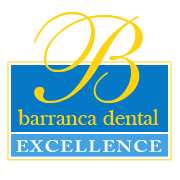[image_frame style=”framed_shadow” align=”right” alt=”Children develop two sets of teeth over their lifetime; their permanent adult teeth and their primary ‘baby’ teeth. Primary teeth will usually begin to develop between six months and a year after birth. This first set of teeth is critical in helping children chew and speak, as well as assisting in the development of your child’s jawbone | Irvine Dentist Neda Khodai, Barranca Dental – An Irvine Tradition of Dental Excellence” title=”Children develop two sets of teeth over their lifetime; their permanent adult teeth and their primary ‘baby’ teeth. Primary teeth will usually begin to develop between six months and a year after birth. This first set of teeth is critical in helping children chew and speak, as well as assisting in the development of your child’s jawbone | Irvine Dentist Neda Khodai, Barranca Dental – An Irvine Tradition of Dental Excellence” width=”300″ height=”199″]https://www.barrancadental.com/wp-content/uploads/2012/04/Baby-Teeth-Barranca-Dental-Irvine-Dentist-Neda-Khodai.jpg[/image_frame]
Children develop two sets of teeth over their lifetime; their permanent adult teeth and their primary “baby” teeth. Primary teeth will usually begin to develop between six months and a year after birth. This first set of teeth is critical in helping children chew and speak, as well as assisting in the development of your child’s jawbone. Dental professionals and the ADA suggest that your child receive an examination by your dentist no later than six months after your child’s first baby tooth, and definitely no later than their first birthday. Dentists don’t just check your baby’s mouth for problems, during the visit your dentist will show you how to properly brush your child’s teeth, and how to avoid any negative oral habits, like thumbsucking.
Teething
Some babies may have sore or sensitive gums when their teeth first start pushing through. Several popular (and acceptable) methods of soothing your child’s gums involve rubbing their gums gently with a clean finger (do not use soap), a small cool spoon, or a damp gauze pad. Teething rings are also found to be helpful in some cases, but not every child will readily accept one. If you find your baby is still suffering after your efforts, there may be more going on and it is recommended that you consult Dr. Khodai or your child’s primary physician.
In most cases, your child will have all twenty of their primary teeth by their third birthday.
Clean Teeth — Healthy Baby
Your child’s dental health is extremely important. A clean mouth can avoid many common ailments of a growing baby, and has been known to reduce night crying. You should begin cleaning your child’s mouth a few days after birth. After feeding, clean your baby’s gums with a fresh gauze pad. This is similar to brushing your teeth, and it will remove plaque and debris.
Once teeth appear in the mouth, your child is vulnerable to tooth decay. As soon as they start to erupt, brush softly with a child toothbrush and water. Do not use toothpaste until your child is over the age of two, and even then only a small amount. Toothpaste is very strong and can harm a young infant if used in excess. Once you do begin to use toothpaste, ensure that they spit afterwards and rinse with water.
If you wish to use a pacifier for your baby, never dip them in honey or other solutions, always ensure that they are clean. Dr. Khodai can recommend the best type of pacifier for your child’s oral health.
Contact Us!
If you have questions about your baby’s teeth, or just need a regularly scheduled cleaning, it’s time to start thinking about your child’s dental health and set up an appointment with Irvine Dentist Dr. Neda Khodai. Call us at 949-553-1111 or click below to get in touch with Barranca Dental Excellence in Orange County California. Se Habla Español!
[button size=”medium” link=”https://www.barrancadental.com/schedule-an-appointment-online/”]Schedule an Appointment Online[/button]
